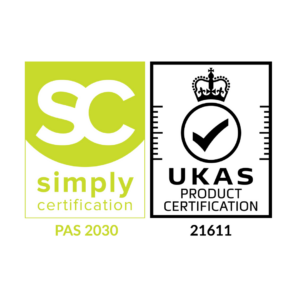Ground Floor Insulation (GFI) plays a vital role in enhancing the energy efficiency and overall comfort of buildings. With a significant portion of heat loss occurring through the ground floor, proper insulation becomes paramount for reducing energy consumption and lowering heating costs.
We’ll provide a comprehensive guide to ground floor insulation in the UK, exploring the benefits, different materials, installation processes, and common mistakes to avoid. Additionally, we’ll offer insights into the cost analysis and potential savings associated with GFI, along with real-life case studies highlighting successful ground floor insulation projects across the country.
Whether you are a homeowner or a building professional, we will equip you with the knowledge needed to make informed decisions regarding ground floor insulation in the UK with NXTGEN Futures.
NXTGEN Futures have an experienced, and dedicated team that specialise in retrofit and installing Ground Floor Insulation systems under the PAS2030 regulations to ensure that all jobs meet the necessary standards.
As per the regulations NXTGEN Futures takes a fabric first approach and as such pride ourselves on our insulating works. We have in-house staff trained at level 2, 3 and 5 so far so we have a deeper understanding of retrofit.
Our Accreditations







1. Introduction to Ground Floor Insulation (GFI)
What is Ground Floor Insulation?
Ground Floor Insulation (GFI) refers to the process of insulating the floor on the ground level of a building. It involves adding an insulating material beneath the floor to reduce heat loss, improve energy efficiency, and create a more comfortable living environment.
The Importance of Ground Floor Insulation
Ground Floor Insulation is essential for several reasons. Firstly, it helps to retain heat within the building, preventing heat loss through the floor. This results in improved thermal efficiency, lower energy bills, and a reduced carbon footprint.
Additionally, GFI helps to control moisture and dampness by creating a barrier between the ground and the floor, minimizing the risk of condensation and mold growth. It can also contribute to noise reduction, particularly in buildings located in busy or noisy areas.
Overall, investing in Ground Floor Insulation is a smart choice for homeowners, as it not only enhances comfort but also offers long-term energy savings.
2. Benefits of Ground Floor Insulation
Improved Thermal Efficiency
The primary advantage of Ground Floor Insulation is improved thermal efficiency. By preventing heat loss through the floor, GFI helps to maintain a consistent indoor temperature, reducing the need for excessive heating during cold weather. This not only enhances comfort but also leads to significant energy savings.
Enhanced Energy Savings
Ground Floor Insulation can result in substantial energy savings. With a well-insulated floor, less heat escapes, meaning you won’t need to rely as heavily on your heating system. This can translate into lower energy bills, saving you money in the long run.
Noise Reduction
Ground Floor Insulation can also help to reduce noise transmission from the ground level to the interior of the building. Whether you live near a busy road or have noisy neighbors, a properly insulated floor can provide a quieter and more peaceful living environment.
Moisture Control
By creating a moisture barrier, Ground Floor Insulation helps to prevent dampness and condensation issues. It effectively keeps moisture from rising through the floor, reducing the risk of mold growth and other moisture-related problems. This not only protects your health but also preserves the integrity of your property.
3. Types of Ground Floor Insulation Materials
Expanded Polystyrene (EPS)
EPS is a common choice for Ground Floor Insulation due to its excellent insulating properties and affordability. It is lightweight, easy to install, and provides good thermal performance.
Extruded Polystyrene (XPS)
XPS is another popular insulation material for ground floors. It has a higher density than EPS, making it more durable and resistant to moisture. XPS is well-suited for areas with higher moisture levels or where the floor may be subjected to heavy loads.
Polyurethane Foam
Polyurethane foam is a versatile insulation material that can be sprayed or poured onto the floor. It expands to fill gaps and creates an airtight seal, providing excellent thermal insulation. Polyurethane foam is particularly suitable for irregularly shaped floors or areas where other insulation materials may be challenging to install.
Mineral Wool
Mineral wool is a natural and sustainable insulation material made from recycled or volcanic rock fibers. It offers good thermal and acoustic insulation properties and is often used in buildings where fire resistance is a priority.
4. Factors to Consider before Installing Ground Floor Insulation
Building Regulations and Compliance
Before installing Ground Floor Insulation, it is essential to check local building regulations and ensure compliance. Certain requirements and standards must be met to ensure safety and effectiveness.
Existing Subfloor Conditions
Assessing the condition of the existing subfloor is crucial. Any damage or issues should be addressed before installing insulation to ensure a solid and stable base.
Moisture and Dampness Assessment
Determining the level of moisture and dampness beneath the floor is necessary to choose the appropriate insulation material and installation method. Steps may need to be taken to address existing moisture issues before proceeding with insulation.
Access Points and Obstructions
Consider any access points or obstacles that may affect the installation of Ground Floor Insulation. These could include pipes, cables, or structural elements that need to be taken into account during the planning and installation process.
Remember, investing in Ground Floor Insulation can have long-lasting benefits for your home, providing energy savings, improved comfort, and a more sustainable living environment. So, don’t overlook the importance of insulating your ground floor!
5. Step-by-Step Guide to Installing Ground Floor Insulation
Preparation and Safety Measures
Before you embark on your ground floor insulation journey, it’s important to make sure you have all the necessary safety equipment. Sure, you might not look like a glamorous DIY superstar in a hard hat and goggles, but your well-being is worth it. And hey, if you want to rock the “caution tape chic” look, no judgment here!
Removal of Existing Floor Coverings
Sadly, as much as we love the shag carpeting from the 70s, it’s gotta go. Start by removing any existing floor coverings, like carpets or linoleum. Think of it as saying goodbye to an outdated fashion statement. Don’t worry, you’ll be replacing it with something much more practical and energy-efficient.
Subfloor Cleaning and Repair
Now that your floor is exposed, it’s time to give it some TLC. Sweep away the debris and make sure your subfloor is in good shape. Fix any cracks or uneven surfaces—it’s like giving your floor a spa day. You wouldn’t want your insulation to be resting on a wonky foundation, would you?
Insulation Material Installation
Here’s where the magic happens. Lay down your insulation material, making sure to cover the entire floor area. It’s like tucking your floor in for a cozy nap. Don’t be shy with the insulation thickness—remember, the thicker, the better. It’s like wrapping your floor in a warm, fluffy blanket.
Vapour Barrier Installation
Just like we need our coffee in the morning to wake us up, your floor needs a vapour barrier to protect it from moisture. Install the barrier over your insulation material, making sure there are no gaps. It’s like giving your floor a raincoat, because nobody likes a soggy floor, right?
Securing and Finishing the Insulated Floor
You’re almost there! Now it’s time to secure and finish your insulated floor. Fix any loose edges, and make sure everything is snug. It’s like giving your floor the perfect bow tie to complete its stylish makeover. Step back and admire your work—you’ve just made your ground floor insulation dreams a reality!
6. Common Mistakes to Avoid during Ground Floor Insulation
Inadequate Insulation Thickness
Remember, when it comes to insulation, more is more. Don’t skimp on the thickness, or your floor will be shivering in its socks. Go big or go home, right?
Incorrect Installation of Vapour Barriers
Installing a vapour barrier might sound complicated, but it’s not rocket science. Just make sure it’s installed correctly, without any gaps or cracks. We don’t want your floor getting caught in a rainstorm without an umbrella!
Insufficient Air Ventilation
Let that floor breathe! Proper air ventilation is crucial to prevent moisture buildup and potential floor problems. Nobody wants a stuffy floor, so make sure it can get some fresh air.
Ignoring Proper Insulation Placement
Insulation isn’t a game of hide and seek. Make sure you cover the entire floor area with insulation—no cheating! Leaving gaps is a big no-no, and your floor won’t appreciate being left out in the cold.
7. Cost Analysis and Potential Savings with Ground Floor Insulation
Initial Investment and Payback Period
Let’s talk money, honey. While ground floor insulation requires an initial investment, it’s like buying a fancy pair of shoes—worth it! The payback period might vary, but trust us, the savings will start rolling in sooner than you think.
Long-term Energy and Cost Savings
Ground floor insulation is like a money-saving superhero. It helps reduce heat loss, keeping your energy bills low and your wallet happy. Who doesn’t love saving money? It’s like finding a forgotten twenty-pound note in your pocket—pure joy!
Government Grants and Incentives
Psst! Want some extra cash for your ground floor insulation project? Check if your government offers grants or incentives for energy efficiency improvements. It’s like getting a present for doing something good—talk about a win-win!
8. Case Studies: Successful Ground Floor Insulation Projects in the UK
Residential Property in London
Picture this: a chilly London home transformed into a cozy haven. Thanks to ground floor insulation, this residential property now enjoys lower energy bills and a warm, toasty floor. It’s like having a cup of tea on a rainy day—completely comforting.
Commercial Building in Manchester
Even commercial buildings need some insulation love. In Manchester, a ground floor insulation project turned a cold, drafty space into an energy-efficient oasis. Employees can now work in comfort, and the company’s bank account is happier too. It’s a win for everyone!
Remember, ground floor insulation is all about giving your floor the warmth and comfort it deserves, while saving you money and energy. So go forth and insulate—it’s like giving your floor a big, cozy hug!In conclusion, investing in ground floor insulation is a wise decision for homeowners and building professionals in the UK. Not only does it improve thermal efficiency, reduce energy consumption, and provide cost savings, but it also enhances the overall comfort and soundproofing of buildings. By understanding the types of insulation materials available, considering important factors before installation, and following the step-by-step guide provided, you can ensure a successful ground floor insulation project. Remember to avoid common mistakes and explore potential government grants and incentives. With the knowledge gained from this article, you are well-equipped to make informed decisions and achieve optimal results with ground floor insulation in the UK.
Ground Floor Insulation FAQ
1. Is ground floor insulation necessary for all types of buildings?
Ground floor insulation is beneficial for various types of buildings, including residential homes, commercial properties, and industrial spaces. However, the necessity may vary depending on factors such as the building’s age, construction type, and existing insulation. It is recommended to assess the specific requirements of your building and consult with insulation professionals to determine if ground floor insulation is necessary.
2. Can ground floor insulation help with soundproofing?
Yes, ground floor insulation can significantly contribute to soundproofing. Insulating the ground floor can help minimize the transmission of airborne sound and impact noise, providing a quieter and more peaceful indoor environment. However, it is important to choose insulation materials with sound-absorbing properties and ensure proper installation techniques to maximize the soundproofing benefits.
3. Are there any government grants or incentives available for ground floor insulation?
The UK government offers various grants and incentives to promote energy efficiency and insulation improvements. These programs aim to reduce carbon emissions and lower energy bills for homeowners and businesses. It is advisable to research and explore schemes such as the Energy Company Obligation (ECO) and the Renewable Heat Incentive (RHI) to determine eligibility and potential financial support for ground floor insulation projects.
4. Can I install ground floor insulation myself, or should I hire professionals?
While it is possible to install ground floor insulation yourself, hiring professionals is recommended for optimal results. Insulation professionals have the expertise, experience, and necessary tools to ensure proper installation, taking into account factors like building regulations, moisture control, and ventilation requirements. Additionally, professionals can provide guidance on selecting the right insulation material and offer warranties or guarantees for their workmanship.
